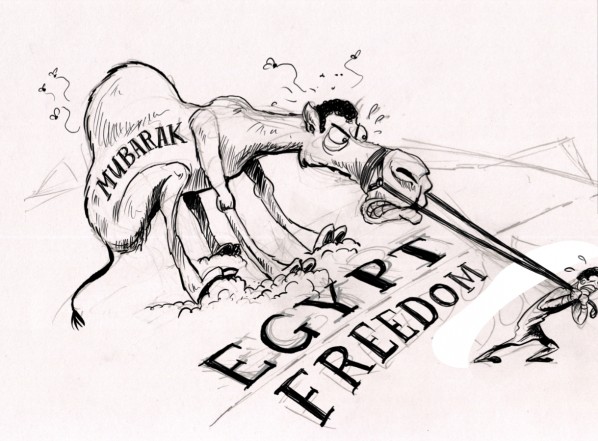
WASHINGTON POST: The power struggle between Egypt’s would-be revolutionaries and its defiant ruler wobbled to a standstill Monday as both sides girded for a prolonged test of wills that could shape the political future of the Arab world. President Hosni Mubarak sought to defuse a mass revolt against his 30-year reign by offering further concessions to an opposition movement that continued to jam Cairo’s central Tahrir Square with tens of thousands of protesters. Reports of arrests and clashes with security forces, meanwhile, appeared to ebb, and protesters said Mubarak seemed to be trying to split the opposition by compromising on all but their core demand – that he leave office. Responding to frustration with an inequitable economy that has left most of Egypt’s 80 million people impoverished, Mubarak’s government announced a 15 percent pay raise for public employees and pensioners, about 6 million people. It also pledged a judicial investigation into allegedly corrupt dealings by three former ministers and a senior ruling-party official. Egypt’s feared security police also released more of the estimated 1,500 activists seized during two weeks of protests in Cairo and other cities. MORE
RELATED: “Mubarak, he’s gone, one way or the other. He is not going to be the leader of Egypt. That’s a given,” Palin said. “So now the information needs to be gathered and understood as to who it will be that fills now the void in the government. Is it going to be the Muslim Brotherhood? We should not stand for that, or with that or by that. Any radical Islamists, no that is not who we should be supporting and standing by. So we need to find out who was behind all of the turmoil and the revolt and the protests so that good decisions can be made in terms of who we will stand by and support.” MORE
